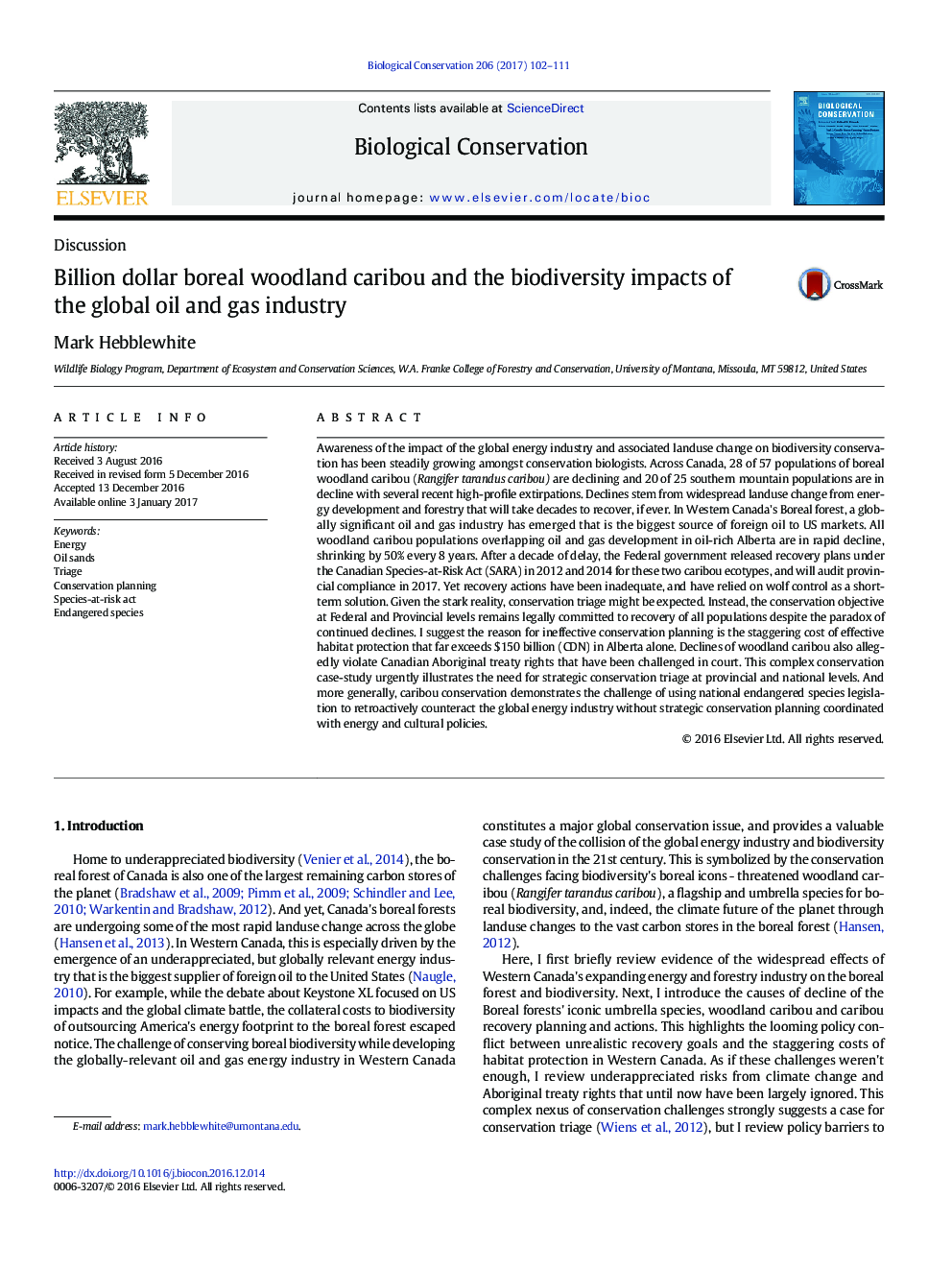| Article ID | Journal | Published Year | Pages | File Type |
|---|---|---|---|---|
| 5743282 | Biological Conservation | 2017 | 10 Pages |
â¢Western Canada is the #1 supplier of foreign oil to US markets, and globally significant.â¢Oil and gas development is among the leading causes of declines of over half of Canada's woodland caribou.â¢Woodland caribou are a key umbrella species for Boreal forest biodiversity, health, and carbon.â¢Canada's Species-at-Risk Act (SARA) aims to recover all of Canada's woodland caribou populations, but ignores the huge economic costs of habitat protection and feasibility of achieving this goal.â¢Conservation triage at national scales is urgently needed to strategically allocate conservation dollars while maintaining energy development.
Awareness of the impact of the global energy industry and associated landuse change on biodiversity conservation has been steadily growing amongst conservation biologists. Across Canada, 28 of 57 populations of boreal woodland caribou (Rangifer tarandus caribou) are declining and 20 of 25 southern mountain populations are in decline with several recent high-profile extirpations. Declines stem from widespread landuse change from energy development and forestry that will take decades to recover, if ever. In Western Canada's Boreal forest, a globally significant oil and gas industry has emerged that is the biggest source of foreign oil to US markets. All woodland caribou populations overlapping oil and gas development in oil-rich Alberta are in rapid decline, shrinking by 50% every 8Â years. After a decade of delay, the Federal government released recovery plans under the Canadian Species-at-Risk Act (SARA) in 2012 and 2014 for these two caribou ecotypes, and will audit provincial compliance in 2017. Yet recovery actions have been inadequate, and have relied on wolf control as a short-term solution. Given the stark reality, conservation triage might be expected. Instead, the conservation objective at Federal and Provincial levels remains legally committed to recovery of all populations despite the paradox of continued declines. I suggest the reason for ineffective conservation planning is the staggering cost of effective habitat protection that far exceeds $150 billion (CDN) in Alberta alone. Declines of woodland caribou also allegedly violate Canadian Aboriginal treaty rights that have been challenged in court. This complex conservation case-study urgently illustrates the need for strategic conservation triage at provincial and national levels. And more generally, caribou conservation demonstrates the challenge of using national endangered species legislation to retroactively counteract the global energy industry without strategic conservation planning coordinated with energy and cultural policies.
Graphical abstractDownload high-res image (129KB)Download full-size image
